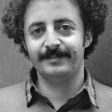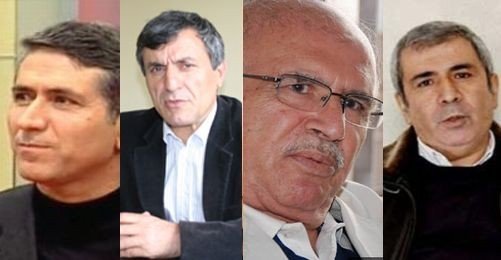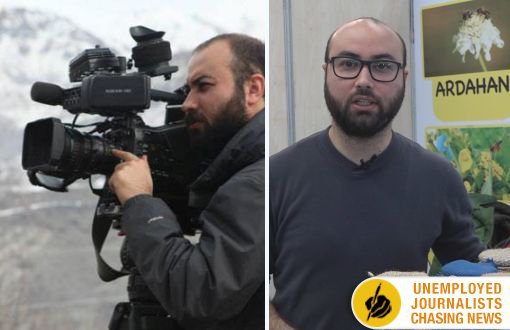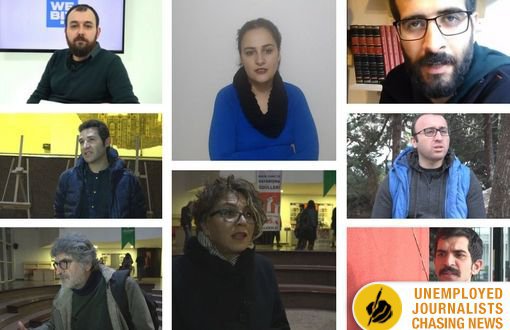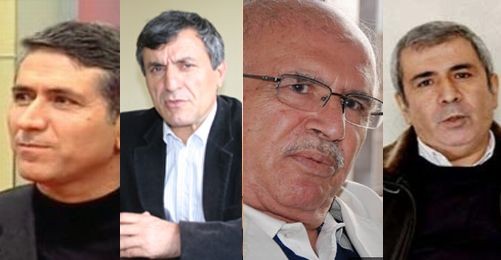
A delegation from the pro-Kurdish parliamentary Peace and Democracy Party (BDP) has been meeting with Abdullah Öcalan, the imprisoned leader of the outlawed Kurdistan Workers’ Party (PKK), and with Kandil, the mountainous headquarters of the PKK in northern Iraq. At the same time, the Democratic Society Congress (DTK), a platform for Kurdish NGOs, has started meeting with Kurdish parties outside of the BDP and other Kurdish organisations.
Following a meeting of the BDP delegation with Öcalan, the DTK’s co-chairs Ahmet Türk and Aysel Tuğluk visited many Kurdish parties and organisations in Diyarbakır last week in order to exchange ideas about the current process.
What all these parties and organisations have in common was that they have always kept a distance to the PKK. However, now they have called for a meeting of all Kurdish organisations, including the BDP, the PKK and the DTK, so that they can agree on common ground before negotiations with the government start. It is likely that Kurdish organisations will take such a step.
Among those Kurdish politicians who are supporting the current process, there are some who belong to organisations that have clashed with the PKK in the past, others who have been part of the Kurdish movement and yet others who have criticised it.
Agreed-upon Demands
At two meetings in September 2011 and March 2012, Kurdish organisations from a spectrum that included Islamists and socialists had come together and agreed on certain principles. Bayram Bozyel, the vice chair of the Rights and Freedoms Party (HAK-PAR) lists the four points that were agreed upon at the “Kurdistan Conference in Turkey” in 2011:
1. Education in the mothertongue and Kurdish to be accepted as a second official language
2. The freedom for Kurds to organise under their own name (i.e. using the expressions “Kurdish” and “Kurdistan”)
3. The right of Kurds to determine their own future
4. The safeguarding of these rights in the constitution
Bozyel spoke of his conviction that the Kurdish question could only be solved if Turkey had a federal structure and also emphasised the importance of a new constitution. He believes that currently is not a phase of negotiations, but rather a phase of dialogue and normalisation.
“We support the PKK’s withdrawal from Turkey and their gradual disarmament. But there must be same basic steps followed parallel to that.”
He added, “We don’t see this phase as a process solving the Kurdish question yet. The Kurdish question will be solved when basic rights and freedoms are returned to the Kurdish people.”
Baksi: “Turkey Citizenship still a denial of Kurds”
Kurdish organisations outside of the BDP are nearly all in agreement with the demands announced after the meetings of 2011 and 2012.
For instance, Lütfi Baksi, the chair of KADEP (Participant Democracy Party), believes that if the new constitution does not include the word “Kurdish”, there will not be a real solution. For Baksi, the “Turkey citizenship” (instead of Turkish citizenship) still amounts to a denial of Kurds.
Baksi supports the meetings in İmrali (the prison island where Öcalan is held) and Kandil, saying: “We are watching this process. We don’t support a solution that does not include the terms ‘Kurdish’ and ‘Kurdistan’. But we are saying, ‘Let it start, the rest will happen.’”
He further suggests the creation of an assembly of Kurdish organisations, which could then form a commission to sit down for negotiations with the government.
Taşçıer: “BDP not the only interlocutor”
İmam Taşçıer, the chair of the Revolutionary Democractic Kurdish Association (DDKD), is cautious and warns that the government should not only talk to the BDP. “We also have suggestions.”
Like the others, Taşçıer also bases his demands on the four principles of the Kurdistan Conference. He says that unfortunately, the Kurdish question is only discussed when there has been gun fire; as soon as the guns stop, people stop talking about it.
He suggests a federal model with independent home affairs for the Kurds but joint foreign affairs with Ankara.
Maçin: “Permanent solution not in sight”
Another politician who has doubts about the meetings in İmrali and Kandil is Nusrettin Maçin, the Diyarbakır province chair of the Freedom and Socialism Party (ÖDP). He finds it “meaningful” that a dialogue has begun, but is not sure whether it is about disarmament or about really solving the Kurdish question.
He also called for the government to include other Kurdish parties in the dialogue, “because this is a question of a nation.”
From a macro-perspective, so Maçin, a lasting solution to the Kurdish question was not in sight, with a Russian, Chinese and Indian pole forming around Syria and a Western European, US and Turkish pole on the other side.
Like others, Maçin does not want the process to be sabotaged, but warns that the PKK is not the only group to be considered. (İA/HK/AG/KU)




